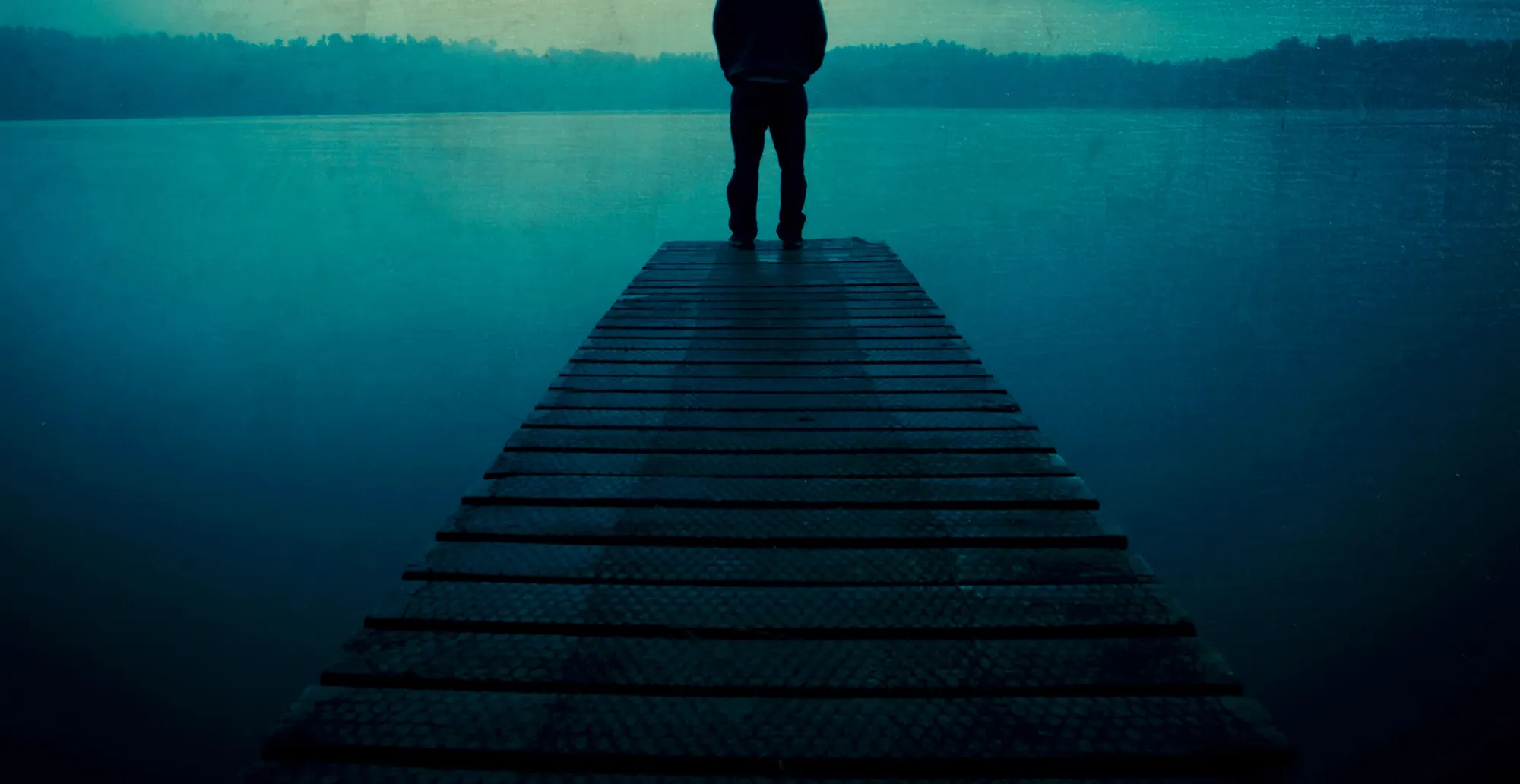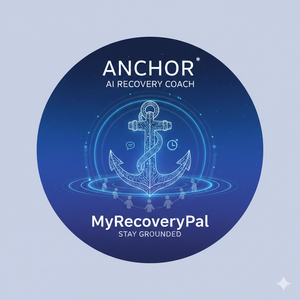
“My addiction’s name is Legion.”
When I first heard this quote from John Ortberg’s Steps, it hit me like a freight train. Seven years into sobriety, I finally had words for what I’d been trying to explain to people who asked, “Why couldn’t you just stop drinking?”
The answer lies in an ancient story that perfectly captures the complexity of addiction — one that goes far beyond the bottle, the needle, or whatever substance held us captive.
The Man Among the Tombs
In Mark 5:1–20 (not Matthew, as I initially thought — even in recovery, we’re still human and make mistakes), Jesus encounters a man possessed by demons. When asked his name, the man responds, “My name is Legion, for we are many.” This wasn’t just one demon tormenting him — it was an entire army. Two thousand, to be exact, if we’re counting the pigs they later inhabited.
The possessed man lived among tombs, isolated from his community. He couldn’t be bound, even with chains. He cried out day and night, cutting himself with stones. Sound familiar? Replace “tombs” with “rock bottom,” and you’ve got the addiction recovery story that millions of us share.
The Army Within
When we talk about addiction recovery, people often think it’s just about putting down the drink or the drug. If only it were that simple. Like the biblical Legion, addiction doesn’t travel alone — it brings an entire army with it.
My legion included:
- The shame of not remembering a family movie night because I was too drunk to be present
- The guilt of promises broken to people I loved
- The anxiety I’d been self-medicating since my twenties
- The depression that whispered I wasn’t worth saving
- The trauma I’d never processed, just drowned
- The rage I couldn’t express sober
- The fear of facing life without my liquid courage
Each demon had its own voice, its own demands, its own chains keeping me bound to a life among the metaphorical tombs. Getting sober wasn’t just about evicting alcohol — it was about facing an entire occupying force that had taken residence in my soul.
The Wreckage We Leave Behind
The biblical account mentions how the possessed man couldn’t be bound by chains — he’d break them apart. In our addiction, we break things too: relationships, trust, careers, health, promises, hearts. The destruction isn’t just collateral damage; it becomes another demon in our legion, whispering that we’re too far gone, that the wreckage is too vast to ever clean up.
I remember standing in my empty house after my divorce, surrounded by the ghosts of a life I’d demolished. The silence was deafening. My addiction had cost me my marriage, friendships, and nearly my relationship with my daughter. Even in early sobriety, these losses felt like demons of their own, taunting me with what I’d thrown away for one more drink.
The Lost Years
Perhaps the cruelest demon in addiction’s legion is time — the thief that can never make restitution. I lost years to blackouts, to hangovers, to being physically present but emotionally absent. Birthday parties where I was there but not really there. Conversations I don’t remember. Milestones missed. Moments with loved ones that are gone forever.
In recovery circles, we talk about “lost decades” with a mixture of grief and acceptance. These aren’t just numbers on a calendar; they’re Christmas mornings, summer vacations, quiet Sunday afternoons — an entire life lived in a haze while the real world moved on without us.
Finding Our Name Again
The beautiful part of the Legion story is what happens after the demons are cast out. The man is found “sitting there, dressed and in his right mind.” But here’s what strikes me most: Jesus tells him to go home to his own people and tell them what has been done for him.
Recovery isn’t just about casting out our demons — it’s about remembering who we are underneath them all. It’s about reclaiming our identity beyond “addict” or “alcoholic.” It’s about learning that we’re parents, friends, artists, builders, healers, storytellers. We’re people who laugh at bad jokes, who cry at movies, who have favorite songs and secret dreams.
My name isn’t Legion anymore. It’s Dad. It’s friend. It’s husband. It’s human being in recovery, one day at a time.
The Exorcism of Recovery
If addiction is possession by Legion, then recovery is a daily exorcism. It doesn’t happen all once with dramatic flair. It happens in church basements and community centers. It happens when we say, “My name is ____, and I’m an alcoholic” and hear “Keep coming back” in response. It happens through the Twelve Steps, through therapy, through medication-assisted treatment, through whatever path leads us home to ourselves.
Some days, I still hear the whispers of my old legion. They’re quieter now, more like echoes than screams. But I’ve learned something crucial: naming them removes their power. When I can say, “That’s shame talking” or “That’s my trauma responding,” I’m no longer possessed by nameless demons. I’m a person dealing with very human struggles.
Daily Recovery and Healing
The journey of addiction recovery requires daily commitment and tools for healing. Many of us in long-term sobriety find that journaling becomes an essential part of our recovery toolkit. Writing down our thoughts, tracking our triggers, and celebrating our milestones helps us stay accountable and recognize patterns in our recovery journey.
If you’re looking for structure in your own recovery process, I’ve created a recovery journal that’s helped me stay on track. It includes daily prompts for gratitude, trigger identification, and recovery goals — the same framework that’s kept me sober since March 4, 2018.
We Are Many, But We Are Not Alone
The irony isn’t lost on me that in recovery, we often say, “We are many” — but in a completely different context. We are millions of people in recovery, each fighting our own legion of demons. We share our stories not because misery loves company, but because testimony breaks the power of possession.
When someone says, “I’ve been there too,” it’s like an exorcism prayer. When we work the steps together, we’re casting out demons in community. When we celebrate another day, month, or year sober, we’re declaring that Legion no longer has dominion over us.
The addiction recovery journey isn’t just about achieving sobriety — it’s about rebuilding our lives, healing trauma, and rediscovering who we are meant to be. Whether you’re dealing with alcohol addiction, substance abuse, or supporting someone in recovery, know that healing is possible.
Breaking the Stigma
Sharing our addiction and recovery stories helps break the stigma that keeps so many suffering in silence. Mental health and addiction are not moral failings — they’re health conditions that deserve compassion, treatment, and support. By normalizing sobriety and recovery, we create space for others to seek help without shame.
My addiction’s name was Legion, for we were many. But today, in recovery, I am one — whole, healing, and finally free to be myself.
If you or someone you love is battling their own Legion, know that recovery is possible. We’ve saved a seat for you in the rooms. Your name doesn’t have to be Legion forever. For daily recovery support and journaling prompts, check out my recovery journal designed specifically for those on the sobriety journey.
Remember: seeking help for addiction and mental health is a sign of strength, not weakness. Recovery resources, support groups, and treatment options are available. You don’t have to face your demons alone.


Comments (0)
Login to leave a comment.
No comments yet. Be the first to share your thoughts!